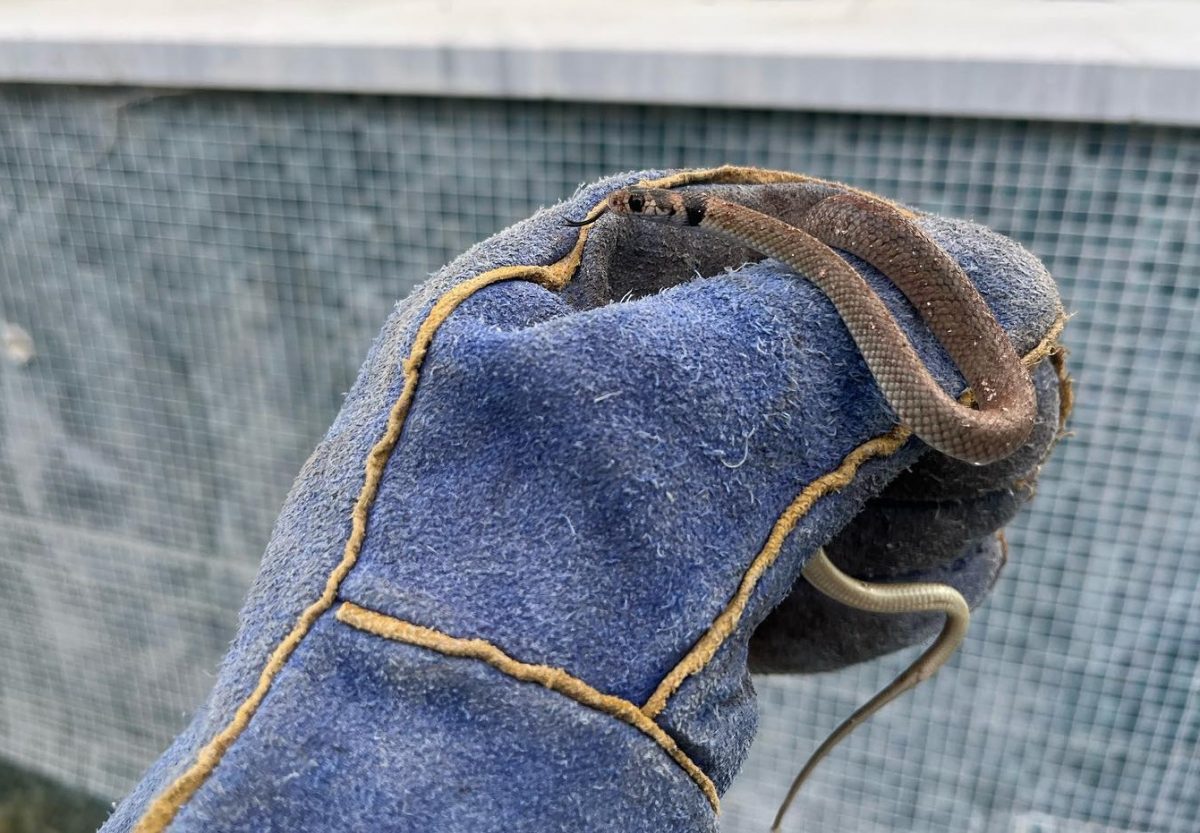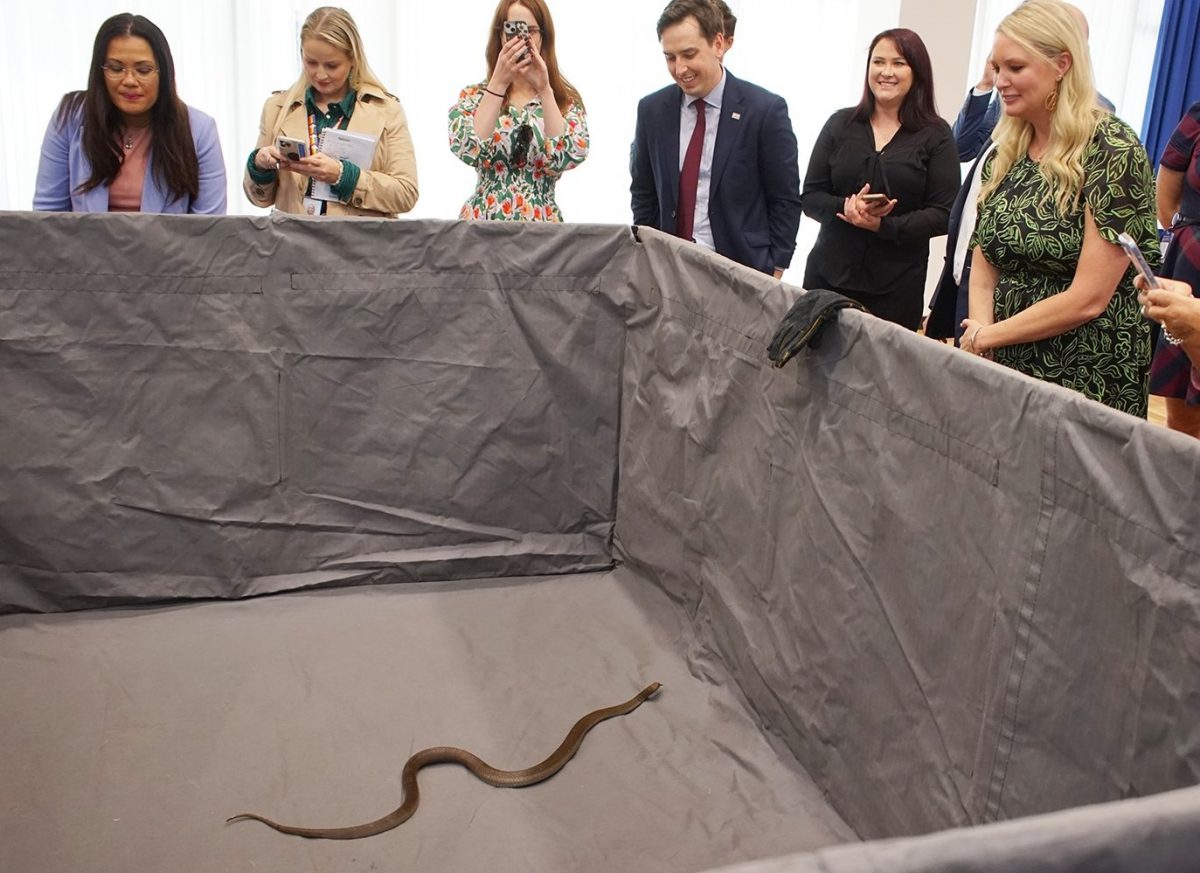
The laws will explore giving licensed snake handlers powers to hold on to injured snakes for longer. Photo: Gavin Smith, ACT Snake Removals.
Canberra being the bush capital, it’s common for ACT Snake Catcher Gavin Smith to receive multiple calls to catch a slithery visitor.
Already this year he’s rescued, caught and released more than 175 snakes from homes, workplaces, schools and community centres across the capital, including four snakes from different schools over 24 hours.
But current legislation makes it difficult for him to run education programs and make sure the injured snakes he rescues get the care they need.
“It is important for snakes to be respected and cared for, like they have been for thousands of years by the Ngunnawal peoples,” he said.
“As Canberra grows in population, it is essential that the community understands how to live alongside our native snakes in a respectful and safe way.
“In my work both as a researcher and a snake catcher, it is increasingly apparent how essential it is for more to be done both in regard to the education of the community and care of snakes when they are injured.”
Now a motion has been moved in the Legislative Assembly calling on the government to do more to protect snakes, educate the community and change legislation around snake handling.
MLA Dr Marisa Paterson said she was shocked to learn current laws didn’t allow licenced snake educators to keep venomous snakes, including for educational purposes.
“Such regulations have led to cases where snakes have been flown in from interstate for snake handling training courses, creating a momentous effort and expense to educate future Canberrans who are committed to catching and educating people in Canberra of safe practices around these venomous creatures,” she said.
“Transporting snakes from interstate may also be distressing for those snakes, and not to mention biosecurity issues.”

A special snake demonstration was held in the Legislative Assembly to educate MLAs on their importance to our environment. Photo: ACT Legislative Assembly Twitter.
When injured snakes are captured, licensed snake handlers can only keep them for veterinary care and treatment for 48 hours. This length of time is the same for other injured native wildlife.
However, Dr Paterson said this timeframe meant snakes had to be moved on to a veterinary clinic or euthanised once the 48 hours had passed.
“Veterinary clinics are often not set up for housing snakes or don’t have trained staff to administer treatment,” she said.
“This puts extra unnecessary pressure on veterinary clinics, when a licensed and trained snake catcher could continue care through to release.
“It should also be noted that some vet clinics will not allow venomous snakes on their premises due to insurance and safety reasons, so options for expert care are limited.”
Dr Paterson’s motion also called on the government to support snake education programs in the ACT, including for new migrants and refugees who can experience “heightened fear” from snakes.
She said these changes were all an important part of learning how to live with the reptiles.
“I look forward to seeing a future where we can live alongside snakes, where they are cared for, and Canberrans are well educated in how to live in harmony with our slithery friends,” Dr Paterson said.
“Snakes are not slimy, scary creatures. They are essential parts of our ecosystem, and we need to protect them.”














